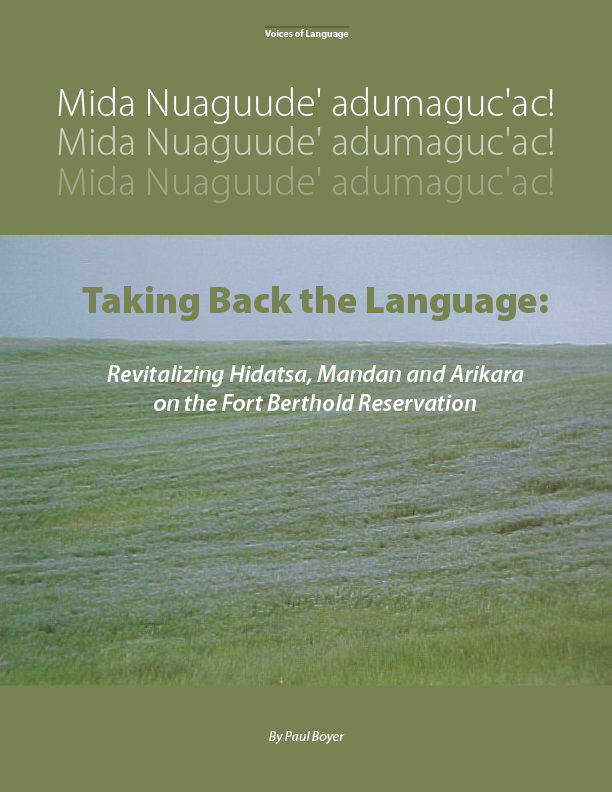What does it take to save an endangered language? Is it enough to teach it in the schools? If not, what more is required?
These are some of the questions explored in Taking Back the Language, a new report written by Native Science Report Editor Paul Boyer, and available here. Focusing on over forty years of language revitalization work on the Fort Berthold Reservation of North Dakota, the 20-page report examines the progress made as well as the obstacles encountered by educators and community activists working to teach the tribe’s three languages.
Based on site visits and extended interviews, the report documents a wide range of accomplishments, including the integration of language classes in most of the reservation’s elementary and secondary schools. As a result of groundbreaking work started in the 1970s, many reservation children now study the Hidatsa or Arikara languages from first to eight grade, and for at least one additional year in high school. Both languages, as well as Mandan, the tribe’s third language, are also taught at Nueta Hidatsa Sahnish College, the local tribal college.
However, the report also documents concerns that the tribe is not doing enough to revitalize its languages. Only a small number of adults speak their ancestral language and school-based programs are not yet producing a new generation of fluent speakers. Searching for a solution, Taking Back the Language explores how educators are introducing new instructional materials and reaching out to the tribal government and professional linguists for support. More than classes, they argue, the tribe needs to develop a comprehensive and coordinated strategy to rebuild respect for the languages and carve out space for their use.
 Taking Back the Language is published by Native Science Report Press as part of its Voices of Language project, a new initiative examining how Native communities in the Americas are working to sustain and revitalize their threatened indigenous languages. Funded by a generous grant from the National Science Foundation, Voices of Language focuses on the work of individual educators and activists. By telling their stories, the project hopes to provide inspiration and insight to others taking part in this young movement.
Taking Back the Language is published by Native Science Report Press as part of its Voices of Language project, a new initiative examining how Native communities in the Americas are working to sustain and revitalize their threatened indigenous languages. Funded by a generous grant from the National Science Foundation, Voices of Language focuses on the work of individual educators and activists. By telling their stories, the project hopes to provide inspiration and insight to others taking part in this young movement.
